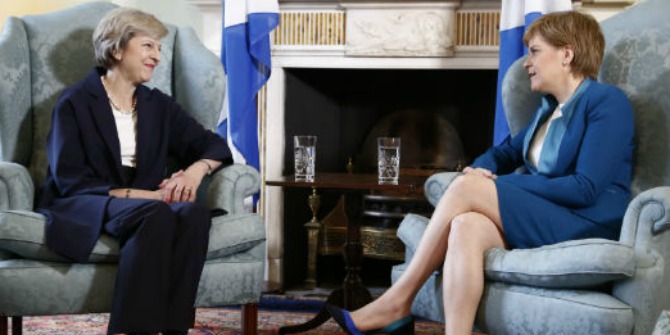 Joan Costa-Font, Mireia Jofre-Bonet and Steven T Yen present research into incentivising blood donation. Classic research has found that monetary incentives to blood donors may crowd out blood supply as purely altruistic donors may feel less inclined to donate if a reward is involved. However it is argued that there would be no supply displacement of altruistic donors if non-monetary rewards were offered instead.
Joan Costa-Font, Mireia Jofre-Bonet and Steven T Yen present research into incentivising blood donation. Classic research has found that monetary incentives to blood donors may crowd out blood supply as purely altruistic donors may feel less inclined to donate if a reward is involved. However it is argued that there would be no supply displacement of altruistic donors if non-monetary rewards were offered instead.
There is increasing interest in the motivation of altruistic behaviour, not merely for the sake of exploring behavioural drives which go beyond classical axioms of self-interest to explain individual behaviour, but more recently as a means of correcting government interventions which are held to crowd out individual actions. For example, the current government has advocated the notion of a ‘big society’, which, although rather unclearly defined, appears to have altruistic behaviour as a central theme. While there is much loose-talk centred around the definition of this policy tool, there is a growing interest in whether such behaviour can be motivated through incentive mechanisms.
There has thus been interest in nudging behaviour towards pre-specified outcomes such as tackling health inequalities, preventing ill-health, improving health outcomes and spreading information and good health advice. Possibly one of the most long-lasting and discussed examples of behaviour broadly consistent with this notion of core altruistic behaviour is individual blood donation.
One donated unit of whole blood can save up to three lives but donated blood has a short shelf life. Regular donors are therefore essential to secure a constant supply. In 1997, the World Health Organization (WHO) recommended that all blood donations should come from unpaid voluntary donors. However, by 2006, only 49 of 124 countries surveyed had established this as a standard. Furthermore, in the WHO’s European region, the number of donors varies from less than 4.5 to over 45 per 1000 population. Only 39 per cent of the general population are eligible to donate, and fewer than 5 per cent of those eligible actually donate.
The issue of the nature of the altruism inherent in blood donation and the perverse effects of financial rewards for blood and/or organ donation has been recently revisited in the economic literature with limited consensus. As Titmuss (1970) famously pointed out, providing monetary incentives to blood donors may crowd out blood supply as purely altruistic donors may feel less inclined to donate if a reward is involved – in addition to having the effect of reducing blood quality.
There is increasing interest in the motivation of altruistic behaviour, not merely for the sake of exploring behavioural drives which go beyond classical axioms of self-interest to explain individual behaviour, but more recently as a means of correcting government interventions which are held to crowd out individual actions.
In Costa-Font et al (2012), we examine how favouring different types of incentives are related to the likelihood of donating blood by exploiting a large sample representative of the population of fifteen European countries in 2002 containing information on both donation and attitudes towards incentives.
Our results indicate that those who believe that monetary rewards should be given for blood donation are less likely to have donated blood, while those favouring non-monetary rewards instead are equally or more likely to have donated blood. Offering monetary rewards for blood donation might indeed crowd out blood supply as the altruistic individual do not favour monetary rewards. There is some cross-country variability in Europe, although crowding out exists without exception in all European countries
Our results also indicate, however, that there would be no supply displacement of altruistic donors if non-monetary rewards were offered instead. Thus, non-monetary rewards could potentially be used to incentivise blood donation, as this kind of rewards seems not to remove incentives.
Males are more likely to be donors, more likely to favour monetary rewards, but not more likely to be in favour of non-monetary rewards. As noted earlier, males may be more likely to be donors for physical reasons (e.g., higher body weight, absence of pregnancy and lactation period, and lower likelihood of being anaemic). Other explanations include the fact that some countries organise blood drives to factories and other places with a higher percentage of males and even motivate very strongly those in the military service to give blood as is the case in Austria.
This research article: Joan Costa-Font, Mireia Jofre-Bonet and Steven T. Yen (2012). “Not all Incentives Wash out the Warm Glow: The Case of Blood Donation Revisited”, can be seen in full here.
Note: This article gives the views of the author, and not the position of the British Politics and Policy blog, nor of the London School of Economics. Please read our comments policy before posting.
Joan Costa Font is a Reader in Political Economy, LSE
Mireia Jofre-Bonet is Economics professor at City University & LSE Health
Steven T Yen is Economics Professor at the University of Tennessee






